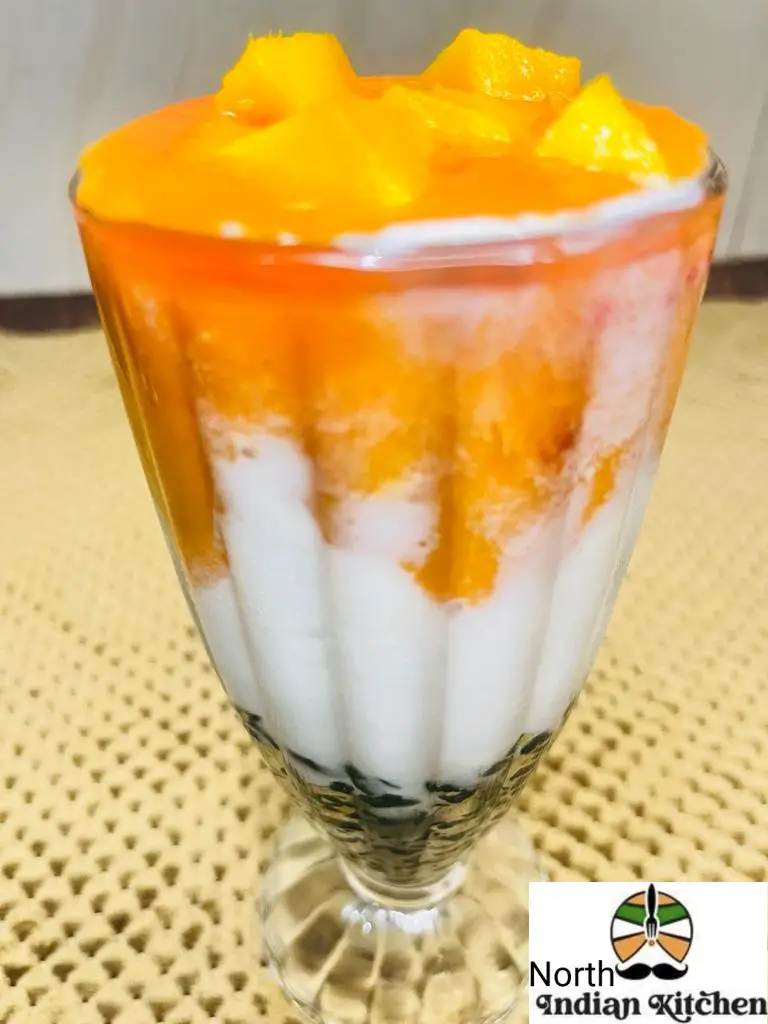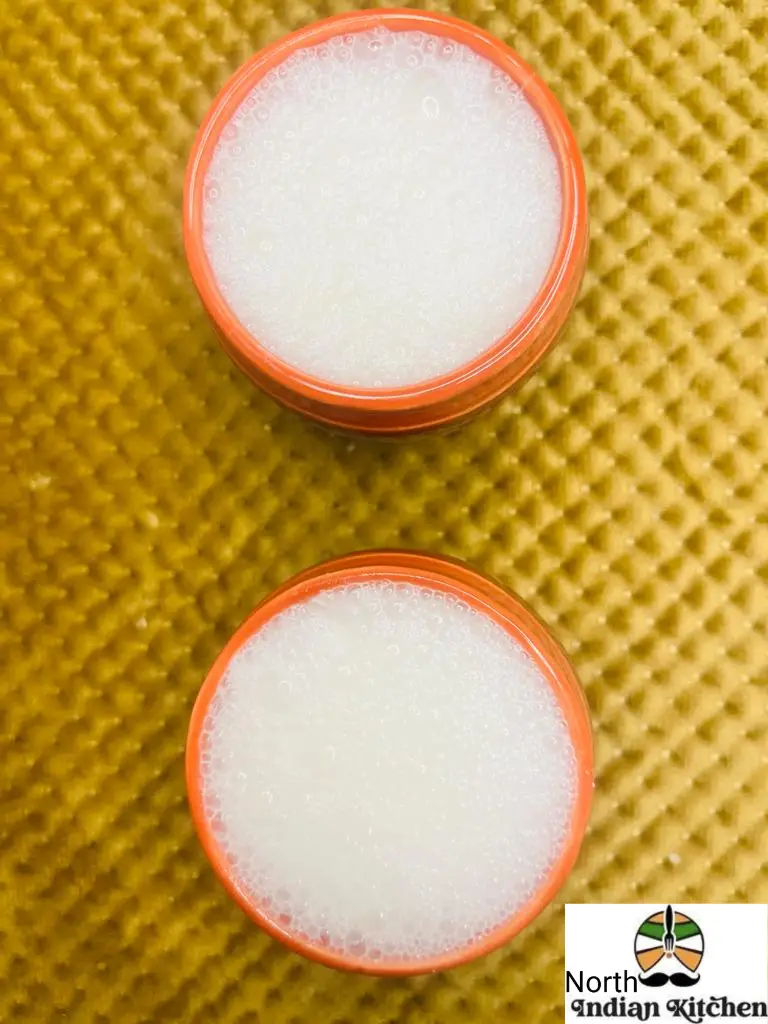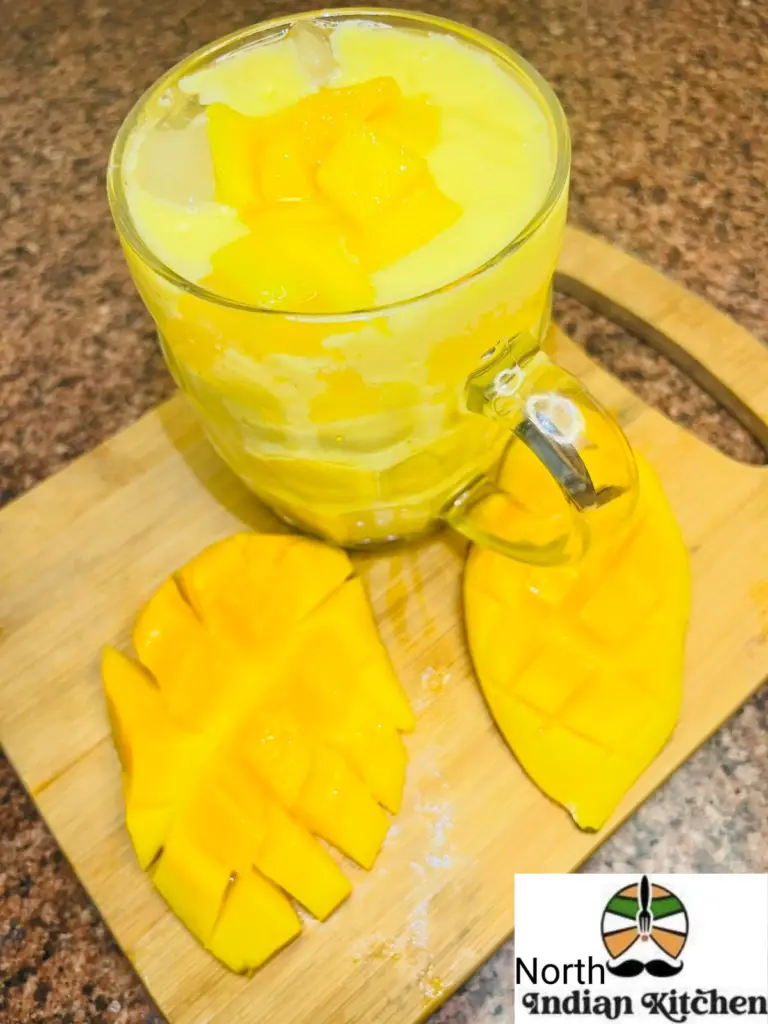Easy Homemade Mango Juice (Fresh Homemade Mango Nectar)
When it comes to refreshing and tantalizing beverages, mango juice undoubtedly reigns supreme. With its luscious flavor, vibrant color, and tropical essence, mango juice is a delightful treat that transports you to sun-kissed orchards and exotic destinations. In this post, we will delve into the enchanting world of mango juice, exploring its origins, health benefits, and various ways to enjoy this tropical nectar. So, sit back, relax, and let’s embark on a journey of mango-infused bliss!
Try our Other Summer Drinks Recipes
The Origin and Varieties of Mango Juice
Mangoes, often hailed as the “king of fruits,” are believed to have originated in South Asia, particularly India and Burma (Myanmar). Over time, their cultivation spread across different continents, and today, mangoes are grown in tropical and subtropical regions around the world. There are numerous mango varieties, each with its unique taste profile, aroma, and texture. Some popular varieties used for mango juice include Alphonso, Kent, Tommy Atkins, and Ataulfo.
Health Benefits of Mango Juice
Apart from its delectable taste, mango juice offers a range of health benefits due to its rich nutritional composition. Mangoes are packed with essential vitamins, minerals, and antioxidants, making them a healthy choice for juice enthusiasts. Some key benefits of mango juice include:
Immune Boost: Mangoes are a great source of vitamin C, which strengthens the immune system and helps fight off infections.
Digestive Aid: Mangoes contain dietary fiber, promoting healthy digestion and preventing constipation.
Eye Health: The fruit is rich in vitamin A and beta-carotene, which are beneficial for maintaining good vision and preventing age-related macular degeneration.
Skin Radiance: The antioxidants in mango juice help rejuvenate the skin, promoting a healthy and glowing complexion.
Hydration: Mango juice is an excellent way to stay hydrated, especially during hot summer months.
Making Mango Juice at Home
Enjoying a glass of homemade mango juice is a fantastic way to relish the freshness and flavor of ripe mangoes. We can make mango juice with the help of mango squash and can be kept for further use. Here’s a simple recipe to make mango juice at home.
Firstly Make Mango Squash
- Initially peel 3-4 ripe mangoes and remove the flesh from the pit.

- Place the mango flesh in a blender and blend until smooth.

- Take a pan, add 1 litre water and 1 kilogram sugar (optionally), or a sweetener of your choice to enhance the sweetness.

- Add 2 tablespoons lemon juice/citric acid.

- Pour the blended mango flesh.

- Mix it until well combined.

- After getting mixed well sieve it through the mesh.

- Rest the mango squash for a while to get cool down at room temperature.

Make Mango Juice
- Afterwards, pour the prepared mango juice into glasses filled with crushed ice.

- Add 3-4 ice cubes and 1 glass water.

- Now take a big pitcher glass and place on top of it. Mix it well by shaking with hard hands.

- Garnish with a slice of mango or mint leaves (optional).

Serve chilled and enjoy!
Mango juice is a delightful beverage that offers a perfect balance of sweetness and tropical goodness. By choosing the right mangoes, experimenting with flavors, and following expert tips, you can create a refreshing and delicious mango juice that will transport your taste buds to paradise. So, grab some ripe mangoes, blend away, and savor the enchanting flavors of this tropical nectar. Cheers to the irresistible joy of mango juice!
Creative Ways to Serve Mango Juice
While a glass of plain mango juice is undeniably delightful, there are endless possibilities to incorporate mango juice into other recipes and beverages. Here are a few creative ideas:
Mango Smoothie: Blend mango juice with yogurt, ice, and your favorite fruits to create a refreshing and nutritious smoothie.
Mango Mocktail: Combine mango juice with sparkling water, a splash of lime juice, and a garnish of fresh mint to create a tropical mocktail for special occasions.
Mango Popsicles: Freeze mango juice in popsicle molds for a delightful frozen treat during the hot summer days.
Mango Salad Dressing: Mix mango juice with olive oil, lemon juice, and a hint of honey to create a sweet and tangy dressing
Expert Tips
Choose Ripe and Sweet Mangoes: The key to a flavorful mango juice lies in using ripe and sweet mangoes. Look for mangoes that are fragrant and slightly soft to the touch. The sweetness of the mangoes will directly impact the taste of your juice.
Use Freshly Squeezed Juice: While store-bought mango juice is convenient, nothing beats the taste of freshly squeezed mango juice. Opt for fresh mangoes and extract the juice yourself using a blender or juicer. This ensures maximum freshness and flavor.
Experiment with Mango Combinations: Mango juice pairs wonderfully with other fruits and flavors. Don’t be afraid to experiment and combine mango juice with other fruits like pineapple, strawberry, or passion fruit to create unique and delicious blends.
Adjust the Consistency: Mangoes vary in their juiciness, so you may need to adjust the amount of water you add to achieve the desired consistency. Add water gradually until you reach the desired thickness and texture.
Add a Hint of Citrus: To enhance the flavor of mango juice, consider adding a splash of citrus juice such as lemon or lime. The acidity of citrus fruits adds a refreshing tanginess that complements the sweetness of mangoes.
Chill and Serve Fresh: Mango juice tastes best when served chilled. Keep your mango juice refrigerated until ready to serve, and consider adding ice cubes to the glasses for an extra refreshing experience.
Avoid Overly Ripe Mangoes: While ripe mangoes are essential for flavor, using mangoes that are overly ripe or mushy can result in a juice that is too fibrous or has an unpleasant texture. Choose mangoes that are ripe but still firm enough to yield a smooth juice.
Store Properly: If you have leftover mango juice, store it in airtight containers in the refrigerator. Consume it within a day or two to maintain freshness and prevent spoilage.
Health-Conscious Modifications: If you are watching your sugar intake or prefer a healthier version of mango juice, you can reduce or eliminate the addition of sugar. Ripe mangoes are naturally sweet, and you can rely on their natural sweetness to enjoy a healthier beverage.
Get Creative with Garnishes: Elevate the presentation of your mango juice by adding creative garnishes. Try topping your glass with a slice of fresh mango, a sprig of mint, or a sprinkle of cinnamon for an extra touch of visual appeal.
FAQs
Q. Is mango juice healthy?
A. Yes, mango juice can be a healthy choice. Mangoes are rich in vitamins, minerals, and antioxidants, which offer several health benefits. However, it’s important to consume mango juice in moderation as it contains natural sugars. Additionally, store-bought mango juices may have added sugars or preservatives, so it’s best to check the label and opt for freshly squeezed or homemade mango juice.
Q. Can I make mango juice without a blender?
A. Yes, you can make mango juice without a blender. One method is to slice the mangoes and use a fork or potato masher to mash the flesh thoroughly. Then, strain the mashed mango through a fine-mesh sieve or cheesecloth to separate the juice from the pulp. Another option is to squeeze the juice manually by pressing the mango slices with your hands or using a citrus juicer.
Q. How long does mango juice last?
A. Freshly squeezed or homemade mango juice is best consumed immediately or within a day or two when stored in the refrigerator. Store-bought mango juices typically have longer shelf lives and can last for several weeks if unopened. However, always check the expiration date and follow the storage instructions provided on the packaging.
Q. Can I freeze mango juice?
A. Yes, you can freeze mango juice. Pour the juice into an airtight container or ice cube trays and place it in the freezer. Frozen mango juice can be stored for several months. When ready to use, thaw the juice in the refrigerator or blend it with ice to make a refreshing slushy.
Q. Can I mix mango juice with other beverages?
A. Absolutely! Mango juice can be mixed with other beverages to create delicious combinations. It pairs well with other fruit juices, sparkling water, coconut water, or even in cocktails and mocktails. Feel free to experiment and create your own unique mango-inspired drinks.
Q. Can I use canned or bottled mango juice instead of fresh mangoes?
A. While fresh mangoes offer the best flavor and nutritional value, you can use canned or bottled mango juice as a convenient alternative. However, be mindful of the ingredients and added sugars in store-bought mango juices. Look for options that have minimal additives and choose 100% pure mango juice if possible.
Q. Can mango juice help with digestion?
A. Mangoes, including mango juice, contain dietary fiber, which can aid in digestion and prevent constipation. Additionally, mangoes have natural enzymes that are believed to assist in breaking down proteins and promoting better digestion. However, individual results may vary, and it’s always best to listen to your body and consume mango juice as part of a balanced diet.
Q. Can mango juice be consumed by people with diabetes?
A. People with diabetes should be mindful of their sugar intake, as mangoes naturally contain sugars. It’s advisable to consult with a healthcare professional or a registered dietitian to determine how mango juice fits into a diabetic meal plan. They can provide personalized guidance based on individual dietary needs and blood sugar management.
If you like this recipe then try our Other Mango Recipes
Please be sure to rate this recipe or leave a comment below if you have made it. For more vegetarian & non – vegetarian inspirations, Sign Up for my emails or follow me on Instagram, Youtube, Facebook, Twitter or Pinterest.
Mango Juice Recipe Card
Equipments
Ingredients
- 3-4 Ice cubes
- 4-6 tablespoons Mango Squash
- 100 ml Water
Instructions
- Firstly Make Mango SquashInitially peel 3-4 ripe mangoes and remove the flesh from the pit.2. Place the mango flesh in a blender and blend until smooth.3. Take a pan, add 1 litre water and 1 kilogram sugar(optionally), or a sweetener of your choice to enhance the sweetness.4. Add 2 tablespoons lemon juice/citric acid.5. Pour the blended mango flesh.6. Mix it until well combined.7. After getting mixed well sieve it through the mesh.8. Rest the mango squash for a while to get cool down at room temperature.Make Mango Juice 9. Afterwards, pour the prepared mango juice into glasses filled with crushed ice.10. Add 3-4 ice cubes and 1 glass water.11. Now take a big pitcher glass and place on top of it. Mix it well by shaking with hard hands.12. Garnish with a slice of mango or mint leaves (optional).Your Mango Juice is ready
Video
Notes
- Homemade mango juice can be made by blending ripe mangoes with water and optionally adding sugar or sweetener.
- Mango juice can be enjoyed in various creative ways, such as in smoothies, mocktails, popsicles, and salad dressings.
- Mango juice can be a healthy choice, but it's important to consume it in moderation and be mindful of added sugars in store-bought options.







